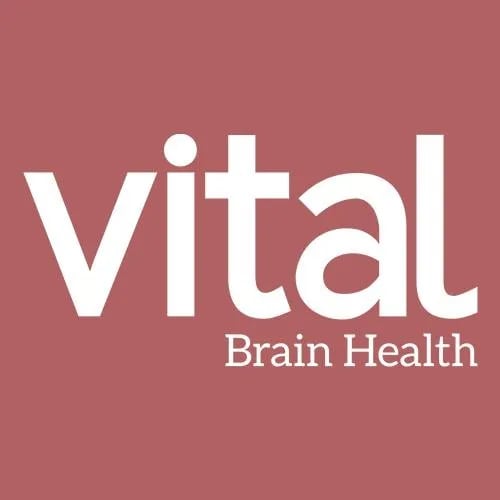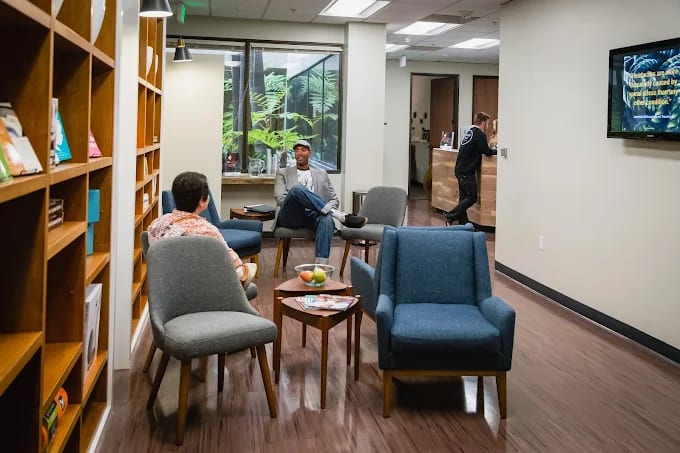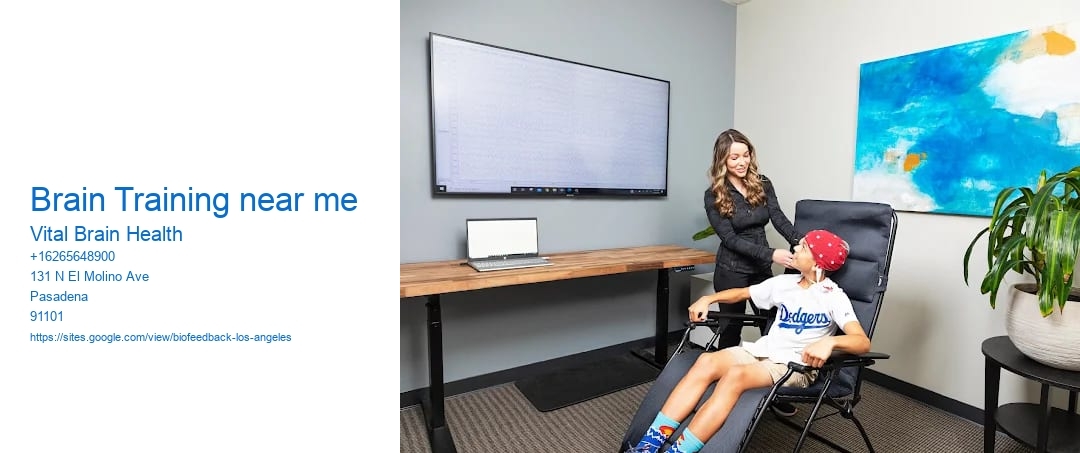Benefits of Local Brain Training Centers
In recent years, the concept of brain training has gained tremendous attention as individuals seek ways to enhance cognitive function, improve memory, and boost overall mental agility. Neurofeedback Los Angeles . Local brain training centers have emerged as valuable resources in this quest, offering a range of benefits that cater to diverse needs. These centers provide personalized, hands-on experience that often surpasses what can be achieved through online platforms or mobile apps alone.
One of the primary advantages of local brain training centers is the access to professional guidance and expertise. Trained professionals at these centers can assess individual cognitive strengths and weaknesses, tailoring training programs to meet specific needs. This personalized approach ensures that participants receive targeted exercises designed to address their unique cognitive challenges, leading to more effective outcomes. Additionally, the presence of professionals allows for real-time feedback and adjustments to the training regimen, optimizing results.
Moreover, local brain training centers foster a community environment that can enhance motivation and engagement. Engaging in cognitive exercises with others provides social interaction, which can be a powerful motivator. Participants often find encouragement and support from peers who are on similar journeys, creating a sense of camaraderie and shared purpose. This social aspect can be particularly beneficial for older adults who might otherwise experience isolation, thereby promoting both cognitive and emotional well-being.
Another significant benefit is the structured environment that local centers offer. Unlike at-home training, which can be subject to distractions and a lack of discipline, brain training centers provide a dedicated space free from interruptions. This structured setting can help individuals focus more intently on their exercises, potentially leading to more significant cognitive improvements. The consistency of attending sessions at a designated location also helps in establishing a routine, which is known to be beneficial for cognitive training.
Additionally, local centers often incorporate a variety of innovative tools and technologies that may not be readily available to individuals training at home. From advanced software programs to specialized equipment, these resources can enhance the effectiveness and variety of training exercises. The use of cutting-edge technology keeps the training engaging and can provide more precise data on progress, allowing for more tailored training adjustments.
In conclusion, local brain training centers offer numerous benefits for individuals seeking to enhance their cognitive abilities. Through professional guidance, community support, a structured environment, and access to advanced tools, these centers provide an enriched training experience that can lead to significant improvements in cognitive function. For anyone searching for "brain training near me," local centers represent a promising avenue to explore, offering both immediate and long-term benefits for brain health.

How to Choose the Right Brain Training Program
Choosing the right brain training program can be a daunting task, especially with the plethora of options available today. As interest in cognitive enhancement grows, so does the number of programs claiming to sharpen mental acuity, boost memory, and improve overall brain health. With so many choices, finding a program that suits your individual needs and goals is essential.
The first step in choosing the right brain training program is to identify your specific objectives. Are you looking to enhance memory, improve focus, or perhaps increase your problem-solving skills? Understanding what you hope to achieve will help narrow down the options. Different programs are designed to target various aspects of cognitive function, so knowing your goals will enable you to select one that aligns with your needs.
Once you have a clear understanding of your objectives, its important to consider the scientific backing of the program. A credible brain training program should be based on solid research and scientific principles. Look for programs developed by cognitive scientists or psychologists with a strong foundation in neuroscience. Reviews and testimonials can be helpful, but they should not replace evidence-based research. Additionally, verify if the program has been tested in peer-reviewed studies and if the results have been published in reputable journals.
Another crucial factor to consider is the programs structure and format. Brain training programs come in various formats, including apps, online courses, and in-person classes. Reflect on what format works best for you and your lifestyle. If you prefer the convenience of training at home, an app or online course might be the best option. However, if you thrive in a social setting, an in-person class could provide the interaction and motivation you need.

Its also important to take into account the level of personalization offered by the program. A one-size-fits-all approach may not be effective for everyone. Programs that adapt to your individual progress and provide personalized feedback can offer a more tailored and efficient training experience. Customizable programs can help maintain your interest and ensure that you are continually challenged.
Lastly, consider the cost and time commitment of the program. Brain training should be a sustainable and enjoyable part of your routine, not a financial burden or time drain. Evaluate whether the program fits within your budget and schedule. Many programs offer free trials or money-back guarantees, allowing you to test them before making a full commitment.
In conclusion, choosing the right brain training program involves a careful consideration of your goals, the programs scientific foundation, format, personalization, and cost. By taking these factors into account, you can find a program that not only meets your cognitive enhancement needs but also fits seamlessly into your life. Remember, the key to successful brain training is consistency and engagement, so choose a program that you find both challenging and enjoyable.
Success Stories: Transformations Through Brain Training
Success Stories: Transformations Through Brain Training

In an age where mental agility and cognitive prowess are increasingly valued, brain training has emerged as a powerful tool for personal transformation. As individuals strive to enhance their cognitive skills, stories of success through brain training abound, offering inspiration and hope for those seeking to sharpen their mental faculties. This essay explores the transformative power of brain training by delving into a few compelling success stories, illustrating the profound impact it can have on individuals lives.
One such success story is that of John, a middle-aged professional who found himself struggling with memory retention and focus amid the demands of his high-pressure job. Plagued by the fear of declining cognitive abilities, John sought out a local brain training center near him. Through a tailored program that combined memory exercises, attention drills, and problem-solving tasks, John experienced a remarkable improvement in his cognitive abilities. Within months, he noticed significant enhancements in his concentration levels and memory recall, which not only boosted his professional performance but also reinstilled his confidence in his mental capabilities.
Similarly, Sarah, a college student grappling with anxiety and attention issues, turned to brain training as a means of managing her academic stress. The structured and repetitive exercises designed to focus attention and enhance mindfulness proved to be a game-changer for her. Not only did her academic performance improve, but she also reported a significant reduction in her anxiety levels. Sarahs story underscores the potential of brain training to not only enhance cognitive function but also contribute to emotional well-being.
Moreover, brain training has shown significant promise in aiding recovery and rehabilitation. Consider the case of Mike, a stroke survivor who faced daunting challenges in regaining his cognitive and motor functions. Through a comprehensive brain training regimen, Mike embarked on a journey of recovery that saw him regain much of his lost abilities. His story is a testament to the resilience of the human brain and its capacity for recovery and adaptation when provided with the right tools and stimuli.
These success stories highlight the transformative potential of brain training, demonstrating its capacity to enhance cognitive abilities, improve emotional health, and aid in recovery from neurological setbacks. As brain training centers continue to proliferate, more individuals are discovering the benefits of structured cognitive exercises tailored to their specific needs. The accessibility of these programs, often available through centers conveniently located near individuals residences, ensures that more people can embark on their own journeys toward cognitive enhancement and personal transformation.
In conclusion, the success stories stemming from brain training emphasize its profound impact on individuals lives, providing a beacon of hope for those seeking to improve their cognitive and emotional well-being. As more people turn to brain training as a means of unlocking their potential, the narrative of transformation through cognitive enhancement continues to grow, offering inspiration and encouragement for anyone on a quest for mental agility and resilience.
Future Trends in Brain Training Technology
The realm of brain training technology is evolving at an unprecedented pace, shaping the future of cognitive enhancement in ways that were once confined to the domain of science fiction. As we look towards future trends in brain training technology, several key developments promise to revolutionize how we think about mental fitness and cognitive health.
One significant trend is the integration of artificial intelligence (AI) into brain training platforms. AI-driven systems are becoming increasingly adept at personalizing training programs to fit individual needs. By analyzing a myriad of data points, including user performance and engagement, AI can tailor exercises that target specific cognitive skills such as memory, attention, and problem-solving. Los Angeles sleep improvement therapy This level of customization ensures that users receive the most effective training regimen, maximizing the benefits of their efforts.
Another promising development is the use of virtual reality (VR) and augmented reality (AR) in brain training applications. These immersive technologies offer an engaging and interactive environment for cognitive exercises, making the process not only more enjoyable but also more effective. By simulating real-world scenarios, VR and AR can provide users with practical applications of cognitive skills, enhancing their ability to transfer these skills to everyday life.
Neurofeedback, a technique that involves monitoring brain activity and providing real-time feedback to users, is also gaining traction. Advances in wearable technology have made neurofeedback more accessible, allowing individuals to track and improve their cognitive performance from the comfort of their own homes. These devices offer insights into brainwave patterns and suggest modifications in behavior or thought processes to optimize cognitive function.
The rise of gamification in brain training is another trend that cannot be overlooked. By incorporating game elements such as rewards, challenges, and leaderboards, brain training programs are becoming more engaging and motivating. This approach not only increases adherence to training regimens but also enhances the overall user experience, making cognitive enhancement a fun and rewarding pursuit.
Moreover, the growing body of research in neuroscience is continually uncovering new insights into brain plasticity and cognitive development. This research is informing the design of more effective brain training interventions, ensuring that they are grounded in scientific evidence and capable of delivering tangible benefits.
As brain training technology continues to advance, the focus is also shifting towards holistic approaches that integrate both mental and physical health. There is a growing recognition of the interconnectedness of mind and body, and future brain training programs are likely to incorporate elements of physical exercise, mindfulness, and nutrition to support overall cognitive well-being.
In conclusion, the future of brain training technology is bright and full of potential. With advancements in AI, VR, neurofeedback, and gamification, we are on the brink of a new era in cognitive enhancement. These innovations promise not only to improve cognitive performance but also to make brain training more accessible, personalized, and enjoyable for everyone. As these technologies continue to evolve, they hold the promise of unlocking the full potential of the human brain, leading to a healthier, more cognitively vibrant society.
